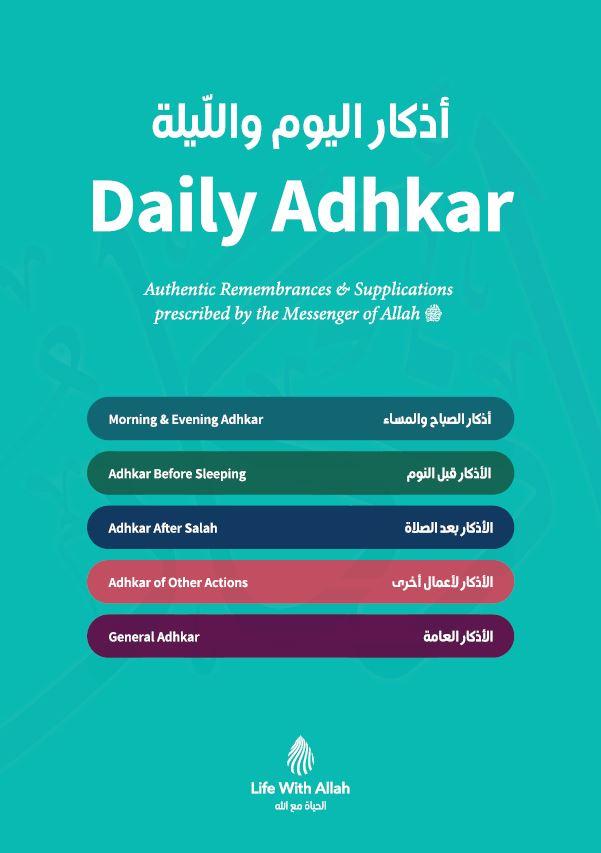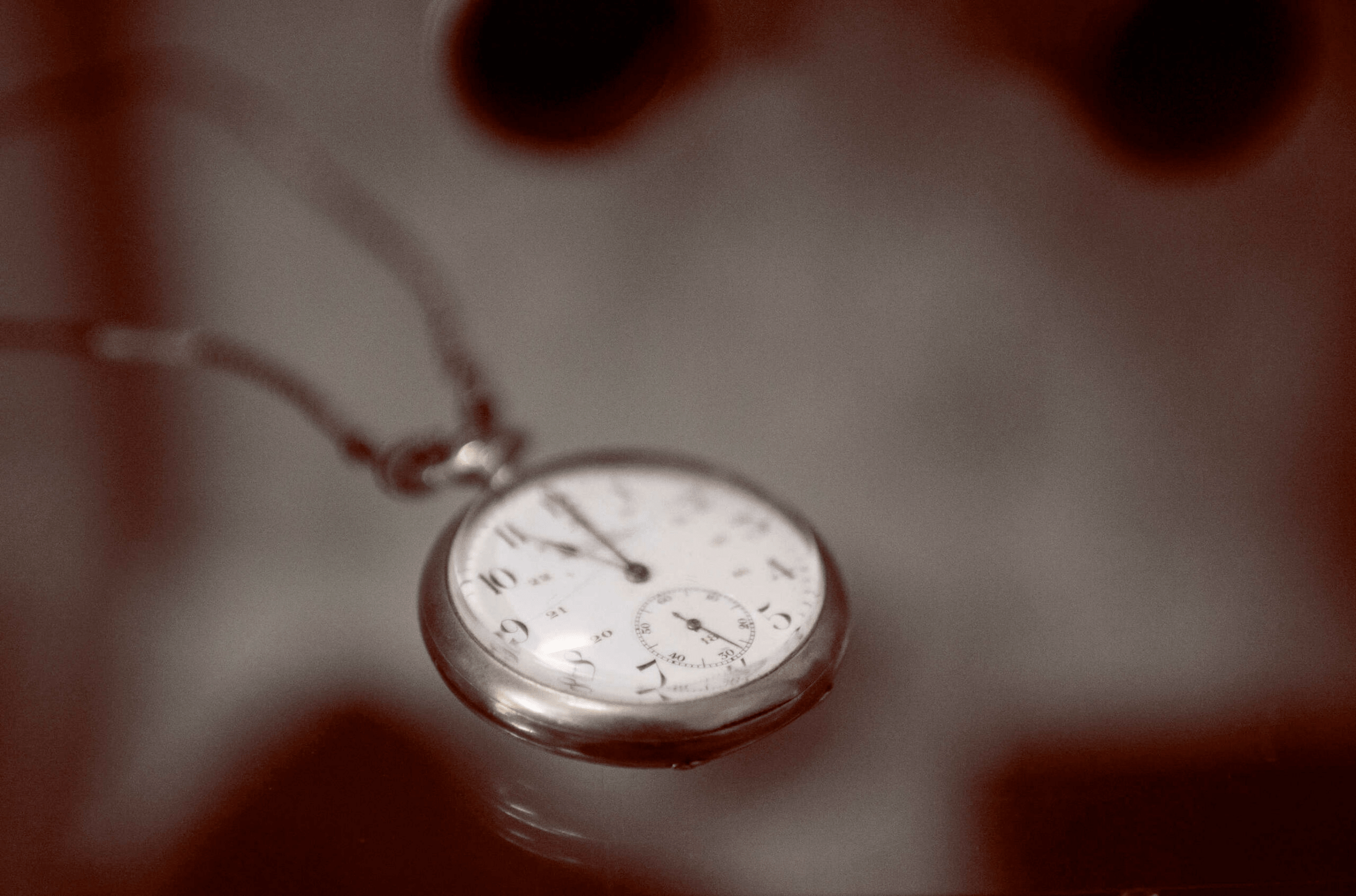1. Begin Your Day With the Remembrance of Allah
The Prophet ﷺ would begin his day with the remembrance of Allah, and he would end his day with the remembrance of Allah. Throughout your day, remain in a state of ʿubūdiyyah (servitude) by constantly remembering Him and supplicating to Him with the sunnah duʿās. Feel your desperate need for Him, and train yourself to ask Him for all your needs throughout the entire day.
2. Realise That Allah Is Giving You Another Day
Realise that Allah has blessed you with another day in your life, another chance to turn to Him. We learn this from the duʿā’ of our beloved Prophet ﷺ:
اَلْحَمْدُ لِلّٰهِ الَّذِيْ عَافَانِيْ فِيْ جَسَدِيْ ، وَرَدَّ عَليَّ رُوْحِيْ ، وَأَذِنَ لِييْ بِذِكْرِهِ
All praise is for Allah who granted me well-being in my body, and returned my soul to me and allowed me to remember Him (Tirmidhī).
Think that this may be your last day on earth. ʿAbdullah b. ʿUmar (radiy Allāhu ʿanhumā) said, “The Messenger of Allah ﷺ touched my shoulder and said, ‘Be in the world as though you are a stranger or a traveller, and consider yourself from the inhabitants of the graves.’” Ibn ʿUmar would say, “When you reach the evening, then do not expect to live till the morning. And when you wake up in the morning, then do not expect to live till the evening. Take advantage of your health before you become sick, and take advantage of your life before you die” (Bukhārī).
Every minute in your journey to Allah is extremely precious. Ḥasan al-Baṣrī (raḥimahullāh) said: “O son of Ādam! You are nothing but a number of days, and whenever a day passes, a part of you passes away.”
3. Realise How Blessed You Are and Thank Allah
The Messenger of Allah ﷺ said, “Whoever amongst you wakes up secure in his property, healthy in his body, and he has his food for the day — it is as if he has been given the entire world” (Tirmidhī). Imām al Munāwī (raḥimahullāh) writes, “The one for whom Allah has combined the blessings of good physical health, a secure heart, sufficient provision for the day, and kept his family safe — has been given all types of blessings by Allah, which others may not have. Thus, he should start his day by giving thanks for that, by using these blessings in obedience to the One who bestowed them on him, not in disobedience; and he should not slacken in remembering Him.
Ibn al-Mughīrah (raḥimahullāh) was asked, “Abū Muḥammad, how are you this morning?” He replied, “We have woken up drowning in the blessings of Allah, unable to thank Him. Our Lord showers us with His love through His blessings, even though He is Free of need, how Perfect is He! Meanwhile we incur His anger through our sins, even though we are desperately in need of Him.
4. Make the Hereafter Your Goal
The Prophet ﷺ said, “Whoever’s concern is the hereafter, Allah will place richness in his heart, gather and organise his life, and the world will come to him regardless (of circumstances, obstacles or people). Whoever’s concern is the world, Allah will place poverty in front of him, make his life chaotic, and he will get nothing of the world except what is decreed for him” (Tirmidhī).
When a servant begins and ends his day, and his sole concern is Allah Alone — Allah (subḥānahū wa taʿālā) takes care of all his needs, and relieves him of all his worries. Allah frees the servant’s heart for His love; his tongue for His remembrance, and his limbs for His obedience. But if the servant begins and ends his day with the world as his concern, Allah burdens him with its worries, anxieties, and hardships; and He leaves him to his own devices. So his heart becomes preoccupied with loving creation instead of loving Allah; his tongue becomes occupied with remembering them instead of remembering Allah; and his limbs become engaged in their service instead of obedience to Him. He toils like an animal in the service of others, like a blacksmith who blows strenuously into the bellow, squeezing his ribs for the benefit of others. Thus, every person who turns away from the servitude, obedience, and love of Allah will be afflicted with the servitude, love, and service of creation. Allah (subḥānahū wa taʿālā) says,
وَمَن يَّعْشُ عَنْ ذِكْرِ الرَّحْمَٰنِ نُقَيِّضْ لَهُ شَيْطَانًا فَهُوَ لَهُ قَرِيْنٌ
“Whosoever turns blindly away from the remembrance of the All-Merciful, We assign to him a devil who is then a companion unto him (43:36)”. – Ibn al-Qayyim (raḥimahullāh)
5. Structure Your Day
Have a clear plan of how you are going to spend your day. Allocate time to: acts of devotion to Allah (both compulsory and voluntary), earning a ḥalāl income, seeking knowledge, fulfilling your obligations to your family and benefiting others. Ensure all your dealings are in conformity with the Sharīʿah.
Your time should not be without any structure, such that you occupy yourself arbitrarily with whatever comes along. Rather, you must take account of yourself and order your worship during the day and the night, assigning to each period of time an activity that must not be neglected nor replaced by another activity. By this ordering of time, the blessing in time will show itself.
A person who leaves himself without a plan as animals do, not knowing what he is to do at any given moment, will spend most of his time fruitlessly. Your time is your life, and your life is your capital: by it you make your trade, and by it you will reach the eternal bounties in the proximity of Allah. Every single breath of yours is a priceless jewel, because it is irreplaceable; once it is gone, there is no return for it. – Imām al-Ghazālī (raḥimahullāh)
6. Utilise the Blessings of the Morning
Ṣakhr al-Ghāmidī (raḍiy Allāhu ʿanhu) narrated that the Prophet ﷺ said, “O Allah, bless my Ummah in its mornings.” When he ﷺ would dispatch a detachment or an army, he would do so in the morning. Ṣakhr (raḍiy Allāhu ʿanhu) was a merchant and he would dispatch his merchandise in the beginning part of the day. He became rich and his wealth increased (Abū Dāwūd).
Ibn ʿAbbās (radiy Allāhu ʿanhumā) once saw his son sleeping in the morning, so he said to him, “Get up! Do you sleep at a time in which the provisions are being given out?”
Ibn al-Qayyim (raḥimahullāh) writes, “The spiritual masters of the heart considered it makrūh (disliked) to sleep after the morning prayer until sunrise, for this time is a golden opportunity. For the seekers, journeying to Allah during this time carries great merit. Even if they stayed up all night, they did not allow missing out on journeying to Allah during this time. It is the first part of the day and the key to the rest of the day. It is a time when provisions come down, sustenance is distributed, and blessings descend. The day is built up on this period of time and the success of the whole day depends on it. Therefore, one should only sleep through it if one has no other choice.”
7. Make Your Day Special
Make your day special by combining voluntary fasting, visiting the sick, following a funeral and feeding the poor — all in one day.
The Prophet ﷺ said, “No person combines these deeds in one day, except that he will enter Paradise.” (al-Adab al-Mufrad)
Try to give some charity every day, even if it is a small amount. The Prophet ﷺ said, “There is no day in which the servants of Allah wake up in the morning, except that two angels descend. One of them says, ‘O Allah, give more to the one who gives (in Your path)’, and the other says, ‘O Allah, bring ruin to the one who withholds’” (Bukhārī).
Whoever desires to attain the rank of the righteous and resemble the best of people, then let them make an intention every day in which the sun rises to benefit creation. – Ibn Taymiyyah (raḥimahullāh)
8. Purify your Heart of Hatred Toward Others
When ʿAbdullah b. ʿAmr (radiy Allāhu ʿanhumā) heard the Prophet ﷺ giving the glad tidings of Paradise to a man, he wanted to know about the special deeds this man did. After staying with him for three days and not noticing any particularly long devotions at night, he asked him what he thought might be the reason for the Prophet’s glad tidings. The man said, “It is only what you saw, except that I find no hatred within myself towards any Muslim, nor do I envy anyone for the good that Allah has given them” (Aḥmad).
9. Don’t Harm the Creation of Allah
Protect yourself from hurting others, especially through your tongue. The Prophet ﷺ said, “When the son of Ādam wakes up in the morning, all of his body parts humble themselves to the tongue saying, ‘Fear Allah in regards to us, for we are dependent on you. If you stay upright, we will stay upright; and if you are crooked, we will be crooked’” (Tirmidhī).
10. Reflect and Seek Forgiveness
We should end our day by evaluating our day. We should think about what sins we may have committed and feel a deep sense of regret. We should ask Allah to forgive us, renew our repentance, and make a firm resolve to stay away from that sin in the future.
Indeed the rights of Allah are greater than what His servants can fulfil, and indeed the blessings of Allah are more than what can be counted; but start your day with repentance and end your day with repentance. – Ṭalq b. Ḥabīb (raḥimahullāh)
Similarly, if Allah gave us the ability to worship Him, we should thank Him for allowing us to worship Him, ask Him to accept it from us, and to forgive our shortcomings in regards to the worship.













